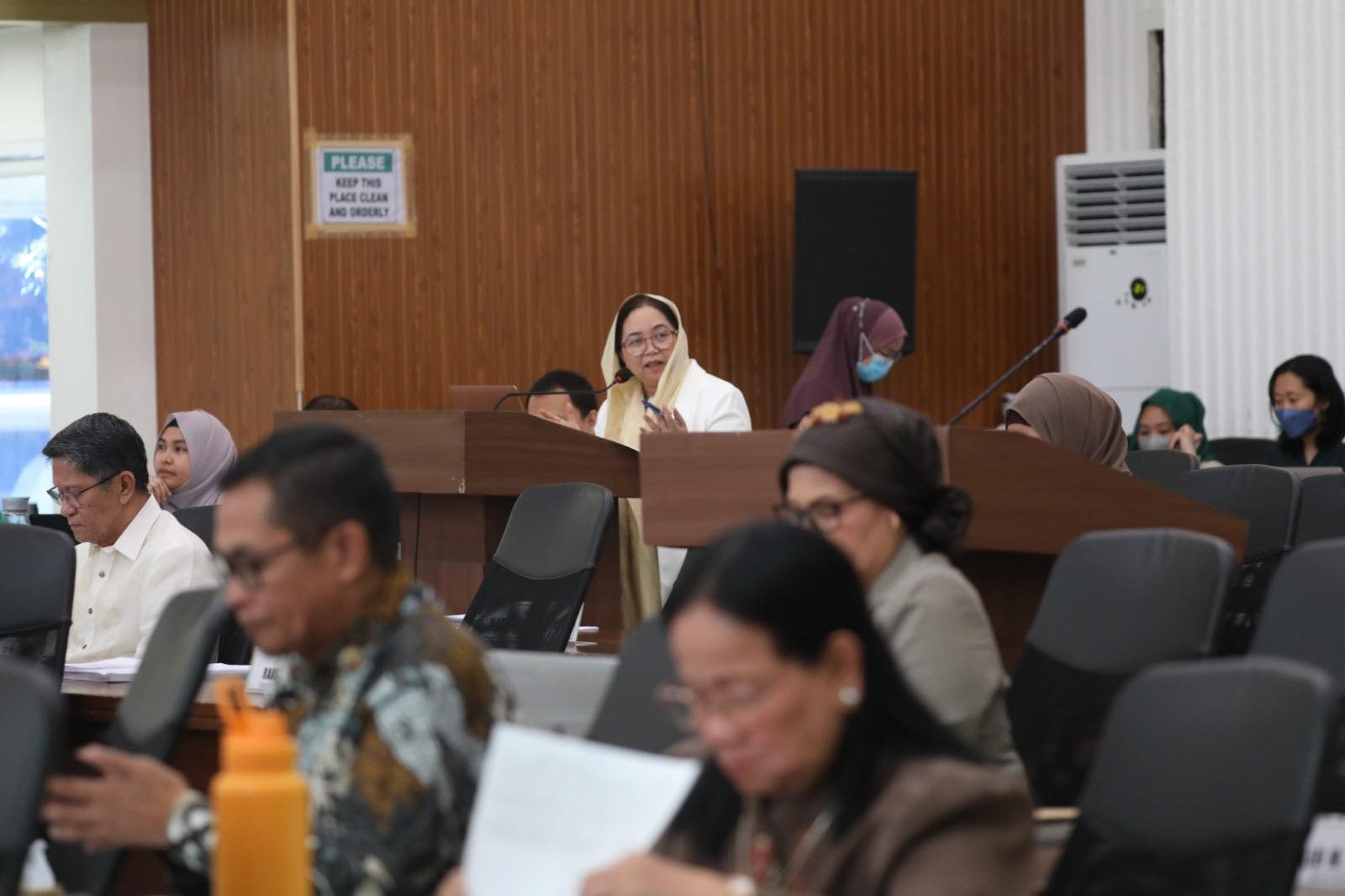
Atty. Raissa Jajurie, Member of Parliament and Chair of the Committee on Local Government, presents the Committee Report for the Bangsamoro Local Governance Code (BLGC) before the Bangsamoro Transition Authority (BTA) plenary on Wednesday, September 20, 2023, at the BTA session hall in Cotabato City. (Michael Camsa/BIO)
COTABATO CITY—Following a series of public consultations and in-depth discussions, the Bangsamoro Parliament has started on Sept. 20, the plenary debates for the Bangsamoro Local Governance Code (BLGC) or Parliamentary Bill No. 30.
Authored by the Government of the Day, BLGC stands as a flagship legislation for the Bangsamoro Transition Authority (BTA), aimed at equipping Local Government Units (LGUs) with the essential tools and authority to efficiently deliver services to their constituents.
BTA Bill. No. 30 will ensure that constituents are well-informed about the services and facilities available in their barangay, municipality, city, and province. Additionally, it seeks to establish a clear and direct relationship between the regional government and its constituents.
During the proceedings on Wednesday, Lawyer Raissa Jajurie, Chair of the Committee on Local Government, emphasized the meticulous scrutiny that BTA Bill No. 30 underwent, particularly since it was referred to the Committee on Local Government.
“Aside from position papers received from all around the region, there were 8 public consultations in all the Bangsamoro provinces, Cotabato City, and the Special Geographic Area, and a consultation with experts and stakeholders within and outside the Bangsamoro,” Jajurie said.
“Alhamdulillah, after 23 days of deliberations sometimes during weekends, the Committee concluded its proceedings and hereby submits its report for the consideration of the plenary,” she added.
She further stressed that a series of meetings to deliberate on the provisions were conducted, discussion on each section of the bill, from Book I, Section 1 to Book IV, Section 554, and introduction of amendments thereon.
Moreover, several concerns raised by Members of Parliament were addressed, including the operative principles of decentralization, distribution of resources to constituent LGUs, and qualifications and disqualifications of elective officials.
BLGC’s Book I, which contains general provisions, statements of policies, principles, processes, and mechanisms for effective local autonomy and moral governance, was highlighted in the plenary debates.
The plenary discussion for BTA Bill No. 30 will resume next week. (Johaira Sahiidala/BIO)







